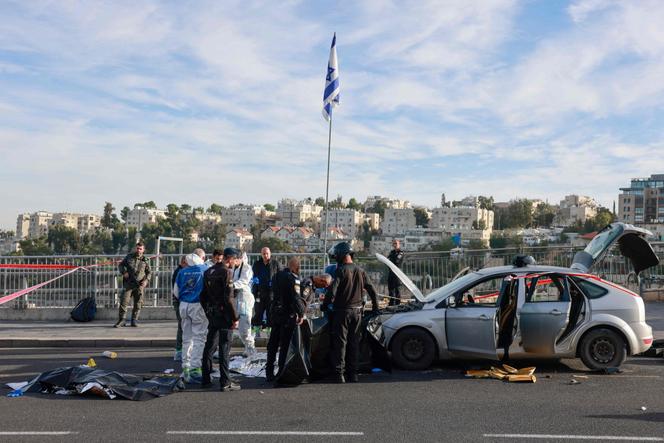


Two men in a vehicle, equipped with a handgun and an American M16 assault rifle, shot people waiting at a bus stop in a Jewish neighborhood west of Jerusalem on Thursday morning, November 30. They killed two women, aged 24 and 60, and a 73-year-old man, a judge at the Ashdod rabbinical court. Six other people were wounded, two of them seriously. The attackers were shot dead by two soldiers and an armed civilian. In the confusion, the civilian was shot by the soldiers and died a few hours later.
The situation seemed to be relatively calm in Jerusalem, but this is not the first attack to hit the city since Hamas attacked Israel on October 7. On October 12, two policemen were wounded outside the Shalem police station on Salah-Al-Din Street – the Palestinian side of the city. A 21-year-old shot them with a homemade firearm. On October 30, a knife attack took place at a gas station in the Sheikh Jarrah district, often frequented by police officers, many of whom pass through this heavily guarded area, not far from the Damascus Gate, one of the entrances to the Old City. One policeman was injured. a 20-year-old Israeli border guard died after a knife attack in the eastern part of the city. The attacker, a 16-year-old Palestinian from East Jerusalem, was shot dead.
Thursday's attack was carried out by two brothers, Murad and Ibrahim Namer, aged 38 and 30 respectively. Originally from the Palestinian neighborhood of Sur Baher in East Jerusalem, they were both affiliated with Hamas, according to the Shin Bet, Israel's domestic intelligence service. They had both served time in prison for terrorist activities. Murad had been locked up between 2010 and 2020. Ibrahim was in prison in 2014. Murad was considered dangerous and had been placed in solitary confinement during his detention, with a ban on seeing his family. Hamas claimed responsibility for the attack in a statement: "This operation is a natural response to the unprecedented crimes of the occupier [Israel] in the Gaza Strip and against children in Jenin", a reference to two boys aged 8 and 15 killed on Wednesday by the Israeli army in this northern West Bank town. Since October 7, some 230 Palestinians have been killed by the army and eight by settlers, according to figures from the UN Office for the Coordination of Humanitarian Affairs.
According to Michael Milstein, head of the Palestinian Studies Forum at the Moshe Dayan Center, the attackers' links with Hamas doesn't necessarily mean that the attack was ordered by the Islamist organization. "It looks like an independent initiative, even if it shows that Hamas still has the means to encourage terrorist acts outside its territory. I think the idea was to take revenge for the very large number of casualties in Gaza. The impact of events in the enclave is very strong, on many different groups, in the West Bank, East Jerusalem but also in the Arab sector in Israel."
You have 50% of this article left to read. The rest is for subscribers only.
